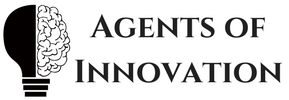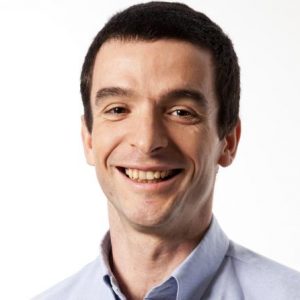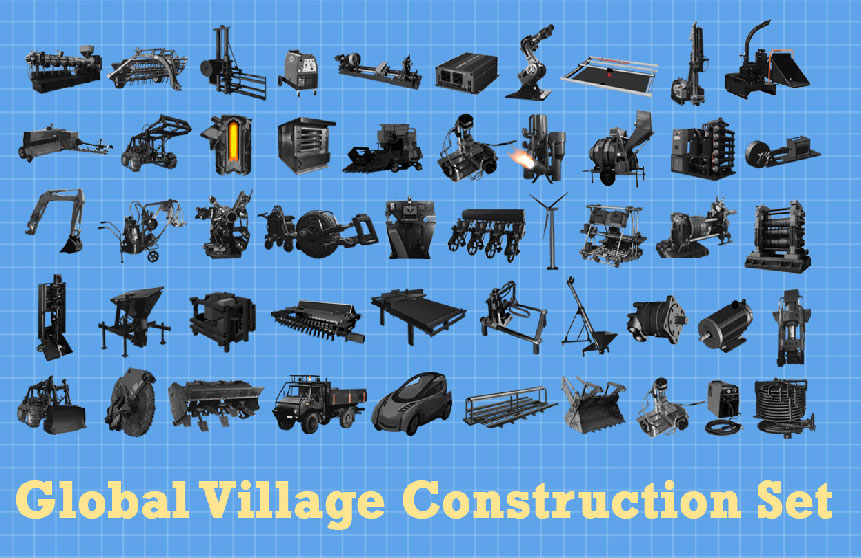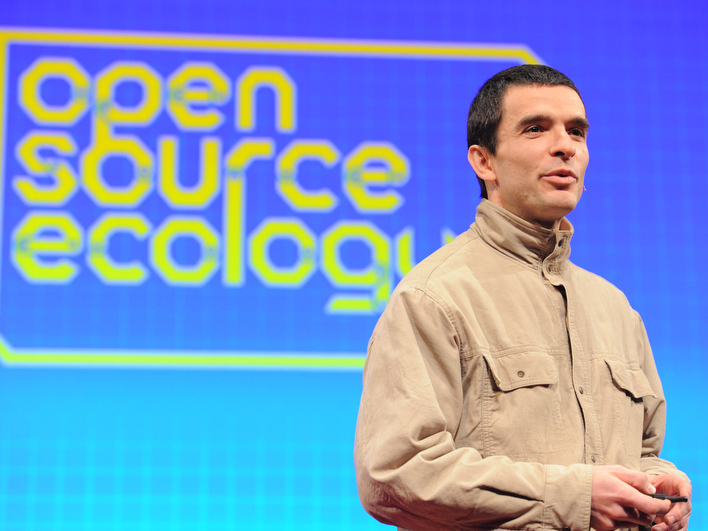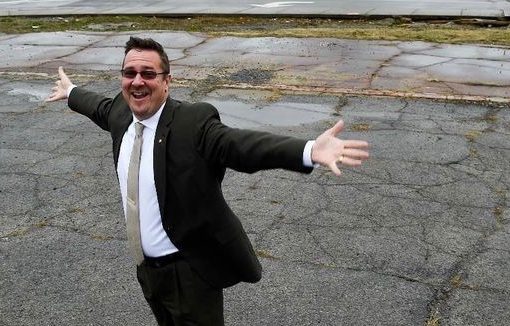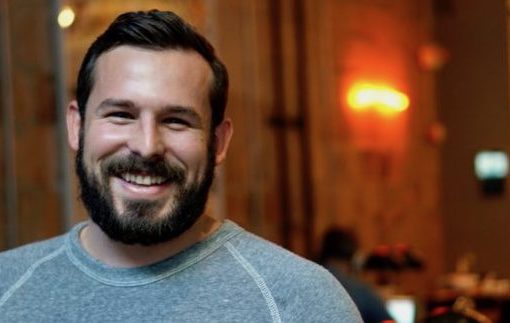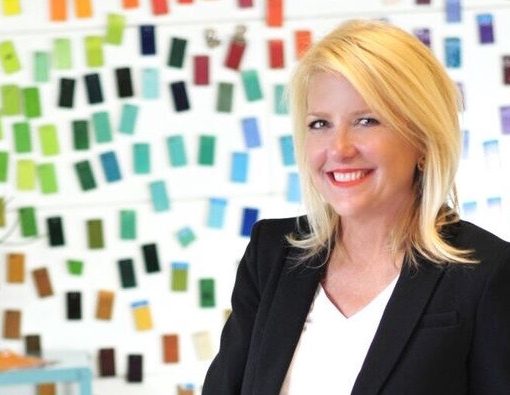Marcin Jakubowski is the founder and executive director of Open Source Ecology. Born in Poland, he moved to the United States in his childhood, lived in the Newark, New Jersey area, graduated from Princeton University, and earned a Ph.D. in Fusion Energy from the University of Wisconsin. However, “the farther I went in my education,” he said, “the more useless I was feeling in terms of solving pressing world issues.”
Marcin was our guest on Episode 79 of the Agents of Innovation podcast. His early years in Poland, which was one of the Communist bloc states of the Soviet Union, taught him a lot about a culture of depravation. On top of that, his grandmother spent time in a Nazi concentration camp during the Second World War. This collection of early life experiences in closed, totalitarian societies influenced his outlook later in life on “open source” and “open collaborative development.”
One of his early jobs as a kid was a paper route, in which he learned the skills of efficiency. “Efficiency is definitely critical to the modern standard of living that we have today,” he said.
As he began going deeper into his adult life and his studies, he started thinking more deeply about the idea of collaboration. In public institutions, like his university, he couldn’t talk openly about what he was doing because of the risk that the idea could be stolen, and his project would be cut out of grant opportunities. And, at other times, he was forced to study theoretical stuff that had no practical application “when there are real problems on the planet,” he said.
After finishing his Ph.D., he took a different route than you’d expect from someone in the field of Fusion Energy. Instead of an academic laboratory, a medical office, or working for a large corporation, he took to the land and started a farm in Missouri. Once there, the learning continued in a new way. He described being “annihilated by weeds that grew and equipment that broke down.” He didn’t have access to appropriate equipment, and he didn’t have practical skills. “I read all the books, but I was completely unprepared for what was to come.”
Throughout his experimentation, he started “thinking about the big picture of things: What would society look like in a framework where everybody collaborated openly, there was no such things as patents, and academia was working on really meaningful problems?”He went beyond thinking and began doing something about it. In 2011, he gave a TedTalk on the subject on “open source blueprints for civilization” to put his idea out there and see if others were interested. During his involvement in those TedTalk series one person was interested in his ideas – and perhaps a bit more. That is where he met his future wife, Catarina Mota.
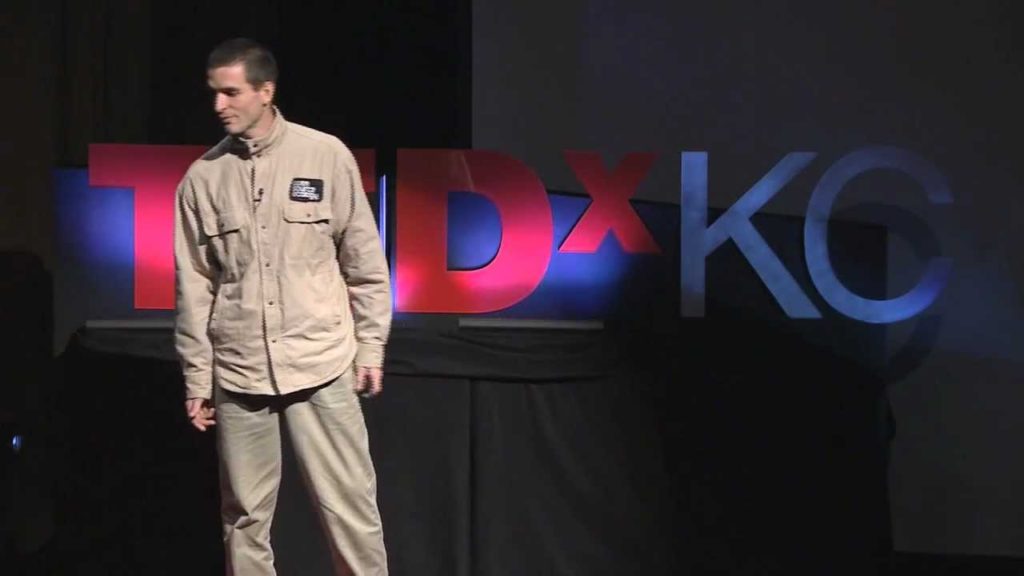
While Marcin’s entrepreneurial drive came later, at first he was simply trying to solve a pressing need for himself – building a sustainable tractor for himself, which later led to him building tractors for others. While his focus was on the tractor, he also identified “the 50 most important machines that it takes for modern life to exist.” In his talks, Marcin explained that he had identified the most critical machines needed to create a sustainable farm and a sustainable community. He set out to “make technology accessible to the common man.”
The first step, he told us, is for each of us to “recognize this is within human capacity. We are indoctrinated to think that some engineer, some crazy scientist did this and it’s not us, but I believe that true democracy relies on people being much more in control of their technology base, so that you can have the flexibility and not the dependence that can’t. So, first it’s a mind shift.”
Our interview took place about five months after the COVD19 epidemic has swept the world. There are many people having a mind shift and perhaps giving some more weight to the ideas Marcin identified almost a decade ago. “Right now, the question of supply chains comes up a lot – what it takes to have a resilient economy,” said Jakubowski. “So people are thinking about this.”
He has shown that in one day, with just 12 people, you can build a tractor – one of those 50 machines they’ve identified they felt are most important and most accessible to all the fundamental things we do in society. You can go to the website, OpenSourceEcology.org, to download plans for each of these machines, including building 3-D printers. Open Source Ecology offers immersion workshops to teach you how to do that. They also have space for others to collaborate on building additional machines beyond the 50 they have identified.
“We can be building the things around us. We are not imprisoned to whatever somebody else offers us,” he said. “I think we’ve seen that with the mass customization, 3-D printing, robotics, and small-scale fabrications being accessible to more people. It’s about switching a mindset from a consumer kind of a mindset to a producer to a creator mindset, that’s the key.”
“We are really indoctrinated to a lot of individualistic or non-collaborative thought patterns,” said Jakubowski. “We develop the mindset and the collaboration techniques which people can use to apply to any problem.”
“In ‘open source’ software – the blueprints, the source code – you can actually take the code and examine it and look at what it does,” said Jakubowski. “The four freedoms of open source: You can inspect it, use it, copy it, and sell it.” That last part is important, he says, “because without that, you wouldn’t be able to incentivize people to collaborate.”
They use this “open source” idea – which is very well-known in the tech space – to provide their blueprints for products in an open source way – so anyone can use, examine, model, make, and build to sell.
He and his wife Catarina are also working on the Open Building Institute. This is a project “to make affordable, ecological housing widely accessible,” a collaborative project. This allows you to build and assemble a house with other people, including the 1400-square foot home Jakubowski is living in right now, from where he was when we interviewed him – via Zoom – for the Agents of Innovation podcast. He built this house in 5 days with 50 people. It’s on the grid and eco-friendly with air and heat run on solar energy.
These rapid builds, which he calls “extreme manufacturing,” are also “social builds,” where you get together with a bunch of people. The Open Building Institute offers these kinds of events as workshops. Their next goal is to create a plan that allows two people to build a house together in one week, for $50,000. Beyond that is putting together the complete Global Village construction set. Jakubowski says this can be done – that even with very common substances you can get to this advanced civilization. They are on a mission to show there are no limits to what’s possible, especially through collaboration.
To build on his collaborative model, Jakubowski and his team are designing immersion training programs and encouraging people to start chapters of Open Source Ecology in different locations.
“We can definitely walk the walk by collaborating more with others,” he admits. “It’s hard to find people that do want to collaborate.”
“If we all collaborated, we would just knock out the problems to get the best products and then move on to solving bigger societal issues like poverty and crime,” said Jakubowski. “People do not see that the pie is big enough for everybody and then we can all benefit by doing it. That is actually the number one challenge that we face.”
“There is a big difference between vision and execution,” said Jakubowski. “That is enterprise: it’s marketing, it’s execution, it’s building up a skill set to do that.”
“The sun shines on the earth 10,000 times more power than we currently use,” he said. “The first principle is an absolute case for abundance. And now we have big problems facing the world. So, to solve them: collaborate.”
He encourages us all to “stop and think deeply about what it really means to collaborate. Then, choose to solve bigger problems.” And his additional advisement to entrepreneurs is this: “Think about the business models around setting up other people to be the entrepreneurs. That is one way I think we can solve bigger problems.”
You can listen to the full interview with Marcin Jakubowski by tuning into Episode 79 of the Agents of Innovation podcast, on Apple podcasts, Google podcasts, Stitcher, and SoundCloud. You can also follow the podcast on Facebook, Instagram, or Twitter. We welcome your comments below and encourage you to write a review on Apple podcasts.
